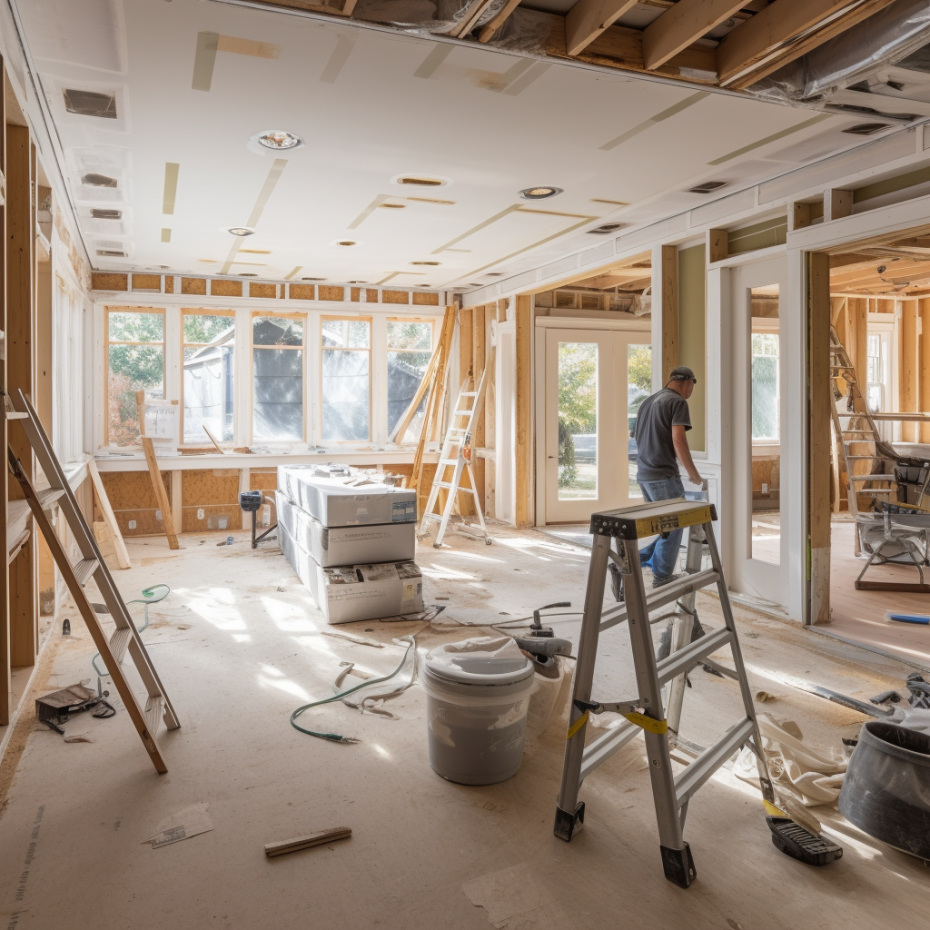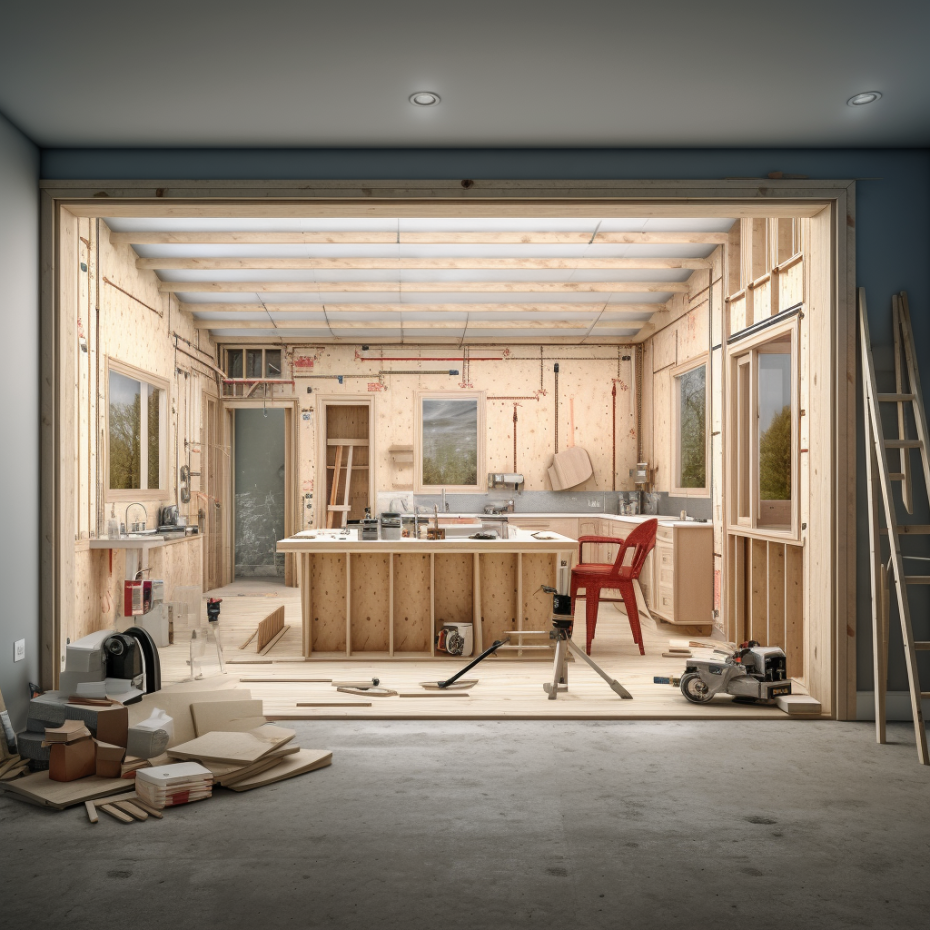Home improvements are common for homeowners who want to improve the aesthetics and functionality of their homes. Navigating the complex web of zoning laws and regulations can be difficult. Zoning laws are crucial in determining what you can do with your property.
This article will explore the world of zoning laws for home improvement, and shed light on how they can affect your renovation or construction projects. Understanding zoning laws is essential to ensure your home improvements meet your needs and comply with local laws.

Basics of Zoning Regulations are local law that governs land use and development in a particular area or jurisdiction. These laws are designed to ensure that properties in a community are used harmoniously with their surroundings. The main focus of zoning regulations is:
Land Use
Determining which types of structures or activities are allowed in a specific zone. For example, residential or commercial, industrial or mixed-use.
Building Height and Size
Limiting the height and size of structures, usually expressed in terms or stories and square footage.
Setbacks
Specifying the distance a building should be set back from other structures and property lines.
Density
Regulation of how many dwellings or structures may be built on any given piece of land.
Parking Requirements
The number of parking spaces that are required for certain types of developments.
Environmental Regulations
Enforcing the rules to protect the natural resources and maintain quality of life within the community.
Architectural Guidelines
Requiring adherence to certain design standards, like historic preservation requirements.
Zoning and Home Improvements
Zoning regulations can significantly impact what you can do to your home. Here are some key considerations for homeowners:
- Renovations and Remodeling - Minor renovations or interior improvements are often exempt from zoning approvals. If your project involves structural modifications or an increase in a building's footprint, permits and zoning approvals may be required.
- Additions: Zoning regulations can apply to any expansion of your home. This includes adding a room, a second floor, or expanding the footprint. This includes adhering to setback requirements as well as building height limits.
- Accessory Structures - Building sheds, garages or in-law suites may require zoning approval. These structures are often regulated by their size, location and purpose.
- Swimming Pools - Installing a pool on your property could require zoning permission, especially if the pool will be large or include additional features such as a poolhouse or extensive landscaping.
- Fences: The height, materials, and location of fences may be governed by zoning regulations. These rules are often implemented to maintain privacy and aesthetics within a community.
- Home-based Businesses: If you plan to run a home-based business, zoning laws may dictate what type of business you can run, the signage, the parking, and even the impact on the neighborhood.
- Historic Properties: If you live in a historic district, you may have to adhere to additional regulations for exterior alterations. These are designed to preserve the historic character of the area.

Understanding the Permit Process
The first step to any home improvement project, which may be subject to zoning laws, is to obtain the required permits. The permit process usually involves several steps.
Research: Research the local zoning laws and contact your city's planning department or county. They can give you information on the permits required for your project.
Application: Fill out a permit application with detailed information about your project, including plans, drawings, and specifications.
Review and approval: Your application will be reviewed by local zoning officials to ensure that it complies with all applicable regulations. This could include zoning and building reviews, as well as environmental reviews.
Public Hearings: Your project may require public hearings or a zoning commission or board approval. This is more common with larger or more complex projects that may impact the neighborhood.
Permits: Once approved for your project, you will receive the necessary permits to begin construction or renovation. It is important to wait for these permits prior to starting any work.
Benefits of Zoning Regulations
Zoning regulations serve many essential purposes, even though they may seem to homeowners as a burden.
- Community Planning: Zoning laws help organize and plan communities. They ensure a mix of residential and commercial areas, as well as industrial zones, that is conducive to the residents' quality of life.
- Property Values: Zoning regulations can protect property values by maintaining a uniform and harmonious neighborhood appearance.
- Environmental Conservation: Zoning regulations often include environmental protections such as restricting the construction of buildings near wetlands or regulating runoff from stormwater.
- Public Safety: Zoning regulations often include safety requirements such as compliance with fire codes, which protect residents and properties.
- Aesthetic Appeal - Zoning regulations help maintain the character and aesthetics of a neighborhood, ensuring new constructions and renovations are in keeping with existing structures.
Challenges and considerations
Zoning regulations can benefit homeowners, but they can also pose challenges. Here are some common concerns and issues:
Cost and Time The permit process is time-consuming and expensive. This includes application fees and architect fees. It could also include legal fees in the event of a variance.
Variances: You may need to apply for a variance if your project does not meet zoning regulations. This can be a complicated and uncertain process.
Neighborhood Opposition: Large, controversial projects can face opposition from community groups or neighbors. This could lead to delays or denials.
Regulations can change over time. What was allowed when you bought your property could no longer be permitted, impacting your renovation plans.

Your Permit Solution - Parceloop
Homeowners can struggle to navigate the complex world of zoning laws and permits. Whether you plan a small home improvement project or a major construction project doesn't matter. Complying with local regulations is an important part of the entire process. Parceloop simplifies your journey.
Parceloop can help you obtain California building permits for all types of projects. Our team of experts is well-versed in acquiring permits and ensuring that all local regulations and codes are met.
Don't let the complexity of zoning and permit acquisition stop you from completing your home improvement project.
Contact Parceloop today to benefit from our expert guidance and streamline your permit acquisition process.